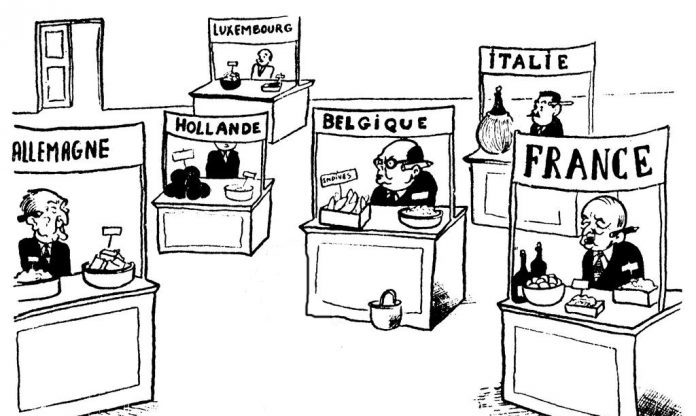Although the current ‘party line’ in the UK appears to demand that the European Union be viewed with acute suspicion and blamed for everything that has got wrong in Europe and, in particular, the United Kingdom, there are still many of us that actually appreciate the EU and all that it has achieved over the years.
So, before any determined Brexiters reading this article choke on their cornflakes, I should add a rider that I am viewing its achievements through the eyes of an expat living in Spain and the Canary Islands. The UK has made its own decision and it is time to move on.
The EU’s anniversary summit and celebrations are due to take place on 25 March 2017, and although the British Prime Minister has been invited, at the time of writing it is anticipated that she will not attend on the basis that it is not regarded as appropriate for the UK to take part in an act of unity and forward planning when the country is about to leave. On this day, EU leaders will gather in Rome to look back over 60 years when just six countries embarked on a project aimed at uniting Europe.
The Treaty of Rome was signed on 25 March 1957 by the then leaders of France, Germany, Italy, Belgium, the Netherlands and Luxembourg. As well as a time for celebration, it will be a time for reflection, as well as looking forward to a challenging new decade that will see the UK leave the EU, as well as a new and unpredictable US President to deal with.
In Spain and the Canary Islands, the post Franco period could have been one of acute turmoil and political unrest, but the EU nurtured this troubled country into the successful and peaceful democracy that we see today. I am not saying that Spain could not have done this on its own, but it would have been much harder and a more painful process to achieve in so short a space of time.
Much of the island where I live, half of which was mostly a barren desert wilderness sixty years ago, has been transformed into an island holiday paradise where many holidaymakers come to escape to the sun. Major infrastructure projects, such as roads, bridges, and tunnels cut though mountain regions have been funded by the European Union enabling all of the island to be developed, which benefits residents and tourists alike. Again, without this level of funding, I doubt that this development would have happened.
As far as benefiting my own life, and for many others like me, the freedom to live and work in any of the member states has been one of the most significant benefits, accompanied by the freedom to purchase property, open a business and enjoy life in a country of my own choosing, rather than being trapped in the country of my birth. For me, this has been a blessing that will be denied to others through rigid immigration policies and other restrictions that have become the narrative of many in the UK.
Citizens’ confidence in the EU has been badly shaken in recent times due to the World Economic crisis, the clumsy handling of debt for countries, such as Greece, and the migrants’ crisis.
During this period of doom and gloom, it is easy to forget the EU’s many achievements, which include 57 per cent of all UK trade, clean rivers and beaches, structural support for areas of decline such as Wales, Cornwall and Lincolnshire, cleaner air, recycling, cheaper mobile phone charges, cheaper air travel, no paperwork or customs between member countries, access to European health services, EU funded research, labour protection, maternity rights, counter terrorism…I could go on for a few more pages, but you get the general idea? Above all, after centuries of war between European neighbours, the EU has finally brought peace.
I, for one, will be celebrating the European Union and the influence for good that it has upon Spain and the Canary Islands, as well as for the people of Europe on 25 March. As with so many things in our fast-moving lives, we often do not know the value of something until we have lost it.
If you enjoyed this article, take a look at Barrie’s websites: http://barriemahoney.com and http://thecanaryislander.com or read his latest book, ‘Footprints in the Sand’ (ISBN: 9780995602717). Available in paperback, as well as Kindle editions.
© Barrie Mahoney





